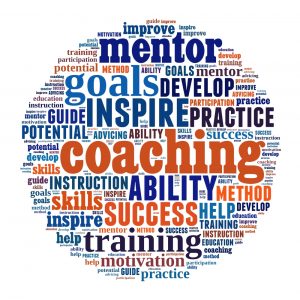Coaching is a very practical service that develops leadership capacity while exploring personal responses in challenging situations.
Coaching builds personal awareness and change through exercising new mental models and practicing new skills that are immediately applicable in the workplace.

Strategic Conflict Coaching:
Strategic Conflict Coaching is a service offered to leaders/individuals who are seeking support to address a specific conflict, dilemma or challenge. Service is provided and billed at an hourly rate.
Professional Development and Leadership Coaching:
Coaching is a very practical service that develops the experienced or aspiring leader’s capacity while exploring personal responses in challenging situations.
Coaching typically consists of a minimum two-month commitment during which an individual works with a coach to build on strengths, change patterns/habits, and/or address areas of concern.
Typical issues that people explore in professional development coaching include:
- Communication styles
- Managing defensiveness
- Time management
- Conflict competency
- Anger management
- Managing personal/professional boundaries
- Racism awareness
Typical issues that are explored in leadership coaching include:
- Developing emotional intelligence and mindful leadership (including work/life balance)
- Building relational influence as a leader
- Delivering effective feedback
- Understanding communication/conflict styles
- Motivating staff and building team trust and resiliency
- Navigating team dynamics and conflict
- Leading effective meetings
Methodology/Sample Project Plan
A) Assessment
Ready:
- An initial meeting is held with relevant parties (e.g. Senior Management and/or HR) to gain a fuller understanding of the background/context of the situation and to develop a shared vision/plan for the coaching process.
Set:
- A meeting is held with the coachee (and relevant parties) to hear the organizational and personal goals, expectations, and commitments for the process.
- This is followed by a private meeting between the coach and coachee for further assessment and to ensure that there sufficient “buy in” to the process.
Go:
- Feedback is sent from the coach to the relevant parties indicating the decision to move forward (or not) with the process.
- The coach also provides the coachee a set of questions to work through in preparation for the first coaching session. The coachee provides any relevant background documents/materials.
- In cases where coaching is not advisable, a meeting is arranged with leadership/HR to discuss other options and next steps.
B) Coaching Plan
Scheduled sessions:
- Personal objectives/goals for the sessions are generated early on and reviewed throughout as a means of evaluating progress.
- Up to five contact hours of scheduled face-to-face or phone coaching sessions per month structured in whatever way (time, duration, location, etc.) best suits the client.
- Skill development and practice sessions (based on the coachee’s real life dilemmas and weaknesses) are frequently held with the support of a second coach.
- Scheduled sessions can be held either at the coachee’s worksite, on site at our office location, or in some cases can be held over the phone/video conference.
Ongoing “on the spot” coachee-initiated support between sessions includes:
- Phone consults (from basic support to crisis management)
- Feedback on email, other correspondence, or other engagements (e.g. a sensitive meeting)
- Review of other documents
Ongoing resourcing/support (as appropriate):
- Providing materials and resources to review
- Recommending practice assignments between sessions
- Referring complementary articles, books, links etc.
C) Final Report
- Summarize activities undertaken, outcomes, and other observations.
- Outline any recommended next steps to leadership/management/HR, coachee and/or other relevant parties.
D) Optional 360 Review
- Gather data (survey/interviews with relevant persons) to help establish initial goals and/or to monitor progress.
- Analyze data and summarize themes.
- Provide feedback to coachee and other relevant parties.
